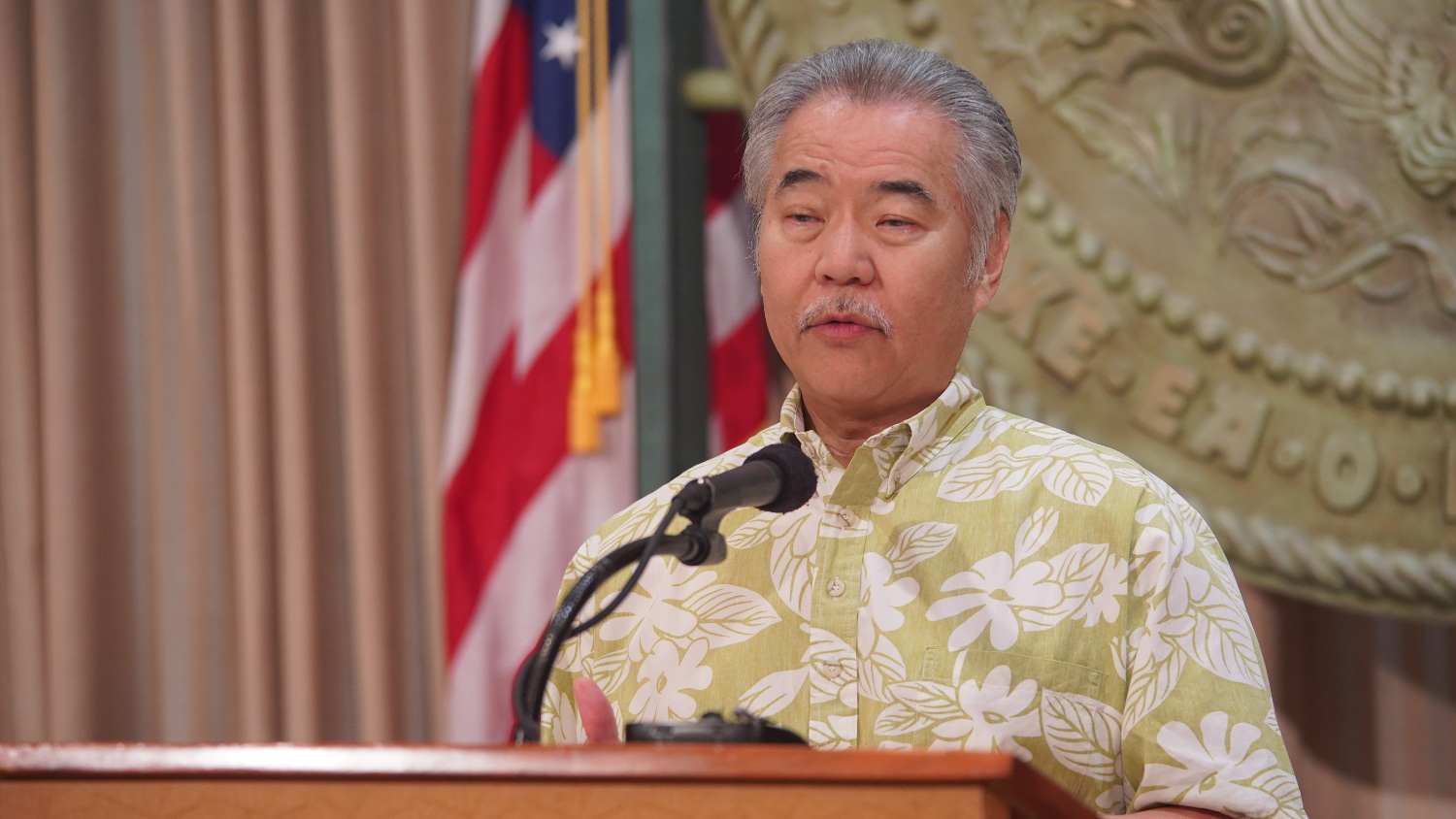Video by Governor David Ige on July 30, 2020.
(BIVN) – Governor David Ige announced during a Thursday news conference that he has signed Senate Bill 126, with some modifications using his line item veto power.
The Governor said his primary concern is that the federal government is requiring that all CARES funds must be expended by the end of the year. The State of Hawaiʻi is still waiting for the U.S. Congress “to act on appropriate additional COVID-19 funding,” a news release stated. “Only then will the state have more clarity on what can or should be done to support new programs established by the CARES funds.”
“I am committed to supporting Hawai‘i residents who have been impacted by COVID-19. That includes continuing to provide standard UI benefits, even if the U.S. Congress fails to extend the plus up federal benefits,” said Gov. Ige, who added that he and his administration have been working with House and Senate leadership to respond appropriately.
“We will need maximum flexibility to use the funds where they are needed most,” the governor said. “It will not serve our community if the funds are designated for a specific purpose by the budget bill, and the funds are not used because they were not necessary or they were duplicated by potential federal support. These are unprecedented times when we are facing enormous budget challenges as a result of COVID-19. Difficult decisions will have to be made.”
The vetoes include:
- A $90 million appropriation for airport screenings and health assurance initiatives. The governor said he agrees with the Department of Transportation that $70 million will be sufficient for equipment and services to test, verify, and monitor travelers during COVID-19.
- $230 million to provide an additional weekly unemployment benefit of $100 per week. “The U.S. Congress is negotiating another economic stimulus package,” Governor Ige rationalized. “Since the package is not yet clear, and because I must act now – I must line-item veto this appropriation. The most effective use of these funds to support the needs of the community, will be determined once Congress has acted.”
- $100 million for housing and rental assistance and the administrative costs related to the housing relief and resiliency program. Governor Ige said the Hawai‘i Housing Finance and Development Corporation believes the initial working capital of $50 million is sufficient to start a program from now until the end of the year. “If additional funding is needed beyond the initial working capital amount, it will be provided at a later date,” the Governor said. “For example, the bill only provides benefits from Aug. 1 through the end of the year. Funds saved by the reduction may be applied to the period March 1 through Aug. 1.”
- $100 million for the purchase of personal protective equipment. “The appropriation does not include the purchase and distribution of sanitation or disinfectant supplies,” governor Ige said. “The Department of Defense believes, and I agree, that $61M is sufficient for the purchase and distribution of PPE to eligible organizations. The remaining funds will be used to purchase and distribute sanitation and disinfectant supplies.”
- Reduce the $36 million to $10 million appropriated for retraining and workforce development programs and reduce $15 million to $10 million that would be used to support emerging industries to create a supply chain for cleaning supplies and PPE.
- A $2 million appropriation for a public-private partnership to support public high school seniors who were adversely affected by COVID-19 would be reduced to $1 million. “An initial working capital of $1M is adequate to begin establishing these programs,” the Governor said. “As they become successful, additional funds may be provided.”
- The $1,080,000,605 transfer from the Emergency Reserve Fund will be reduced to $648 million. This is a technical correction because the amount is overstated by $432,000,605, the governor says.
The signed bill will be returned to the Legislature tomorrow.


by Big Island Video News11:45 pm
on at
STORY SUMMARY
HONOLULU, Hawaiʻi - Governor Ige repeated that Hawaiʻi is facing enormous budget challenges as a result of COVID-19, and that difficult decisions will have to be made.